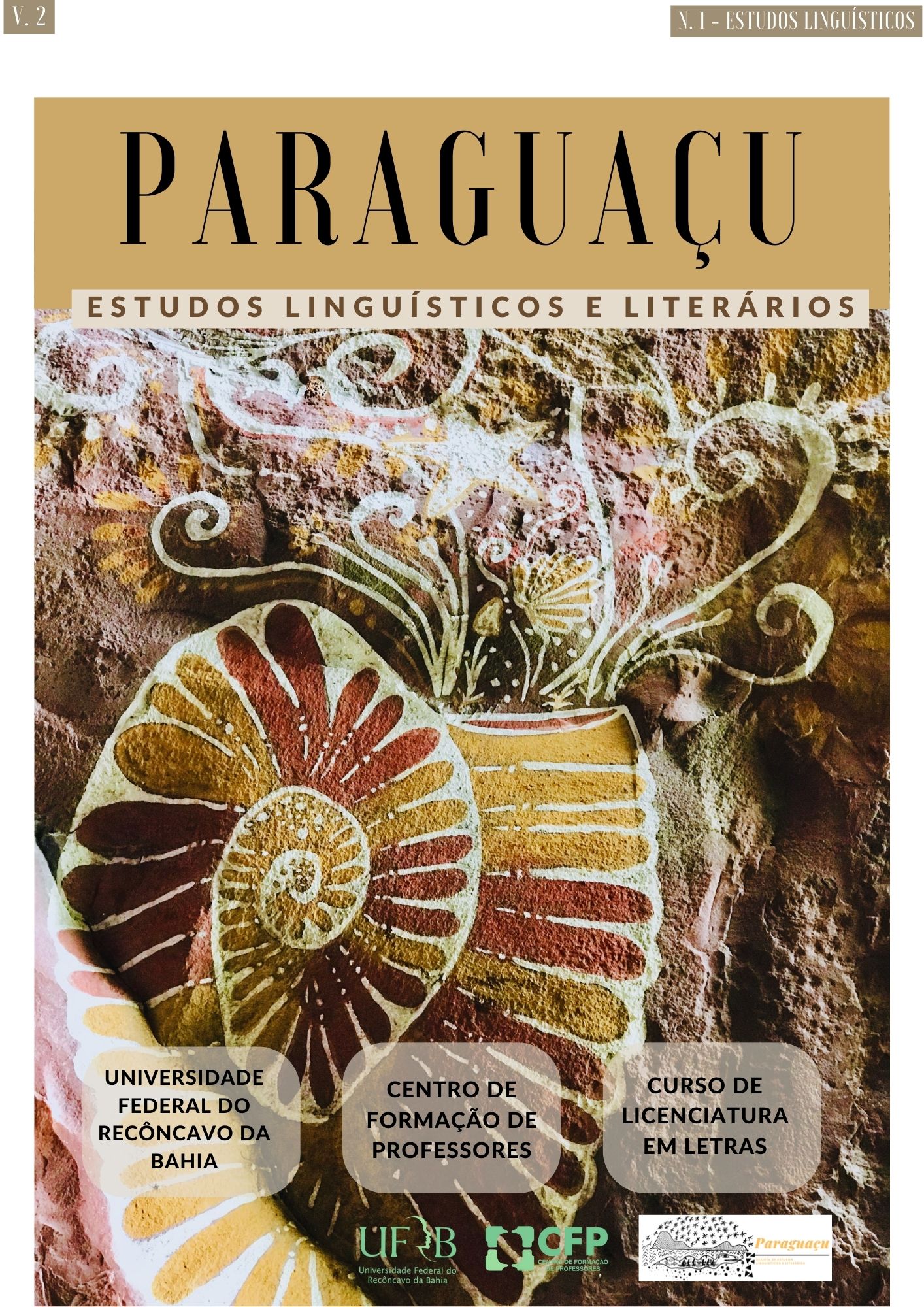THE POLITICAL AND SOCIAL ASPECTS BEHIND THE HISTORY OF ENGLISH LANGUAGE TEACHING IN BRAZIL
Abstract
This paper is an outline of the doctoral research entitled 'I'm from Candyall Guetho Square, I'm from the world and I have something to tell you: storytelling as a social action in English as a lingua franca (ILF) classes in the Candeal community', the aim of which was to introduce the teaching of English as a lingua franca to the children of the Candeal community through storytelling by former students of the Pracatum-English NGO. As this research was developed based on the tenets of Applied Linguistics, which advocates critical and reflective foreign language teaching, it became essential to make a theoretical cut that locates English teaching in Brazil, within the political and social background that resulted in the landing of Uncle Sam in Rio de Janeiro, in the midst of the Vargas government. The essay will also show how an understanding of this political context and knowledge of the territory of future speakers helps to strengthen the identity subjectivities of foreign language learners living in Candeal Pequeno, the neighborhood where the timbales sound in Salvador.
Downloads
References
ACHEBE, C. The African writer and the English Language. In: OKPEWHO, I. (Ed.). Chinua Achebe’s Things Fall Apart: A Casebook. New York: Oxford University Press, 2003, p.55-65.
AUSTIN, J. L. How to do things with words. Cambridge, M.A.: Harvard University Press, 1962.
BATISTA, A. A. G. Um objeto variável e instável: textos, impressos e livros didáticos. In: ABREU, M. (Org). Leitura, História e História da Leitura. São Paulo: FAPESP, 2000, p. 529- 575.
BRASIL. Ministério da Educação e do Desporto. Parâmetros curriculares nacionais: língua estrangeira. Brasília: MEC, 1998.
______. Ministério da Educação e Desporto. Secretaria da Educação Fundamental.
Referencial curricular nacional para a Educação Infantil. Introdução. Brasília: MEC; SEF, 1998.v. I, p. 63.
CANAGARAJAH, A. S. Reclaiming the Local in Language Policy and Practice. Mahwah, NJ: Lawrence Erlbaum Associates, 2005.
CHAGAS, R.V.C. Didática especial de línguas modernas. São Paulo: Companhia Editora Nacional, 1976.
COOK, V. Going beyond the native speaker in language teaching. TESOL Quarterly. v. 33, 1999, p.185–209.
COX, M. I. P.; ASSIS-PETERSON, A. A. Inglês em tempos de globalização: Para além de bem e mal. Calidoscópio, Vol. 5, No. 1, 2007, p.5-14.
CRYSTAL, D. New Englishes: going local in Brazil. 12nd BRAZ-Tesol National Convention. The art of teaching. São Paulo. 2010.
CRUZ, D. T. O ensino de língua estrangeira como meio de transformação social. In: SCHEYERL, D.; MOTA, K. (Orgs.). Espaços Lingüísticos: Resistências e expansões. Salvador: EDUFBA, 2006, p.25-56.
FREIRE, P. Pedagogia do oprimido. Rio de Janeiro: Paz e Terra, 1996.
FRIEDRICH, P. M. When Five Words Are Not Enough: A Conceptual and Terminological Discussion of English as a Lingua Franca. International Multilingual Research Journal, 2010, p. 20 -30.
GEE, J.P. New times, new literacies: Themes for a changing world. In: BALL, A.F. & GIL, A. Métodos e técnicas de pesquisa social. São Paulo: Atlas, 2009, p.8-202.
GIMENEZ, T. Políticas governamentais, mídia e ensino de línguas estrangeiras. In: GIMENEZ, K. (Org.). Contribuições na área de línguas estrangeiras. Londrina: Moriá, 2005. p. 91-104.
GIMENEZ, T. Antes de babel: inglês como língua franca. In: Encontro de Letras: Linguagem e Ensino – ELLE, 7, 2009, Londrina. Anais. Londrina: UNOPAR, 2009, p. 1-10.
KUMARAVADIVELU, B. The Decolonial Option in English Teaching: Can the Subaltern Act? TESOL Quarterly. v. 0, n 0, 2014.
MODIANO, M. Linguistic imperialism, cultural integrity, and EIL. ELT Journal, v. 55, n. 4, Oxford University Press, 2006, p.339-346.
MOITA LOPES, L. P. Por uma Lingüística Aplicada Indisciplinar. São Paulo: Parábola, 2006.
MOITA LOPES, L. P. Inglês e globalização em uma epistemologia de fronteira: ideologia linguística para tempos híbridos. DELTA, São Paulo, Vol. 24, No. 2, 2008.
MOURA, G. Tio Sam chega ao Brasil:a penetração cultural americana. São Paulo: Brasiliense, 1988.
PAIVA, V. M. O. A LDB e a legislação vigente sobre o ensino e a formação de professor de língua inglesa. In: TEIXEIRA, C. M.; CUNHA, M. J. C. (Org.). Caminhos e colheitas: ensino e pesquisa na área de inglês no Brasil. Brasília: Editora da UNB, 2003. p. 53-84.
PENNYCOOK, A. A linguística aplicada dos anos 90: em defesa de uma abordagem crítica. In: SIGNORINI, I; CAVALCANTI, M. C. (Org.) Linguística aplicada e transdisciplinaridade. Campinas: Mercado de Letras, 1998, p. 12-65.
PENNYCOOK, A. English in the world/The world in English. In: BURNS, A.; COFFIN, C. (Orgs.). Analysing English in a Global Context. Sydney: Routledge, 2001, p.78-89.
SANTOS, M. Por uma Outra Globalização. Rio de Janeiro: Record, 2000.
SEILDHOFER, B. English as a Lingua Franca. ELT Journal, Vol. 59, No. 4, 2005, p. 339-341.
SIQUEIRA, D. S. P.; ANJOS, F. A. dos. Ensino de inglês como língua franca na escola pública: por uma crença no seu (bom) funcionamento. Muitas Vozes, Ponta Grossa, v.1, n.1, 2012, p. 127-149.
SOUZA, M.; FLEURI, R. Entre limites e limiares de culturas: educação na perspectiva intercultural. In: FLEURI, R. M. (Org). Educação Intercultural: mediações necessárias. Rio de Janeiro: DP&A, 2003, p. 53-84.
SPIVAK, G. Pode o Subalterno Falar? Trad. Sandra Regina Goulart Almeida, Marcos Pereira Feitosa, André Pereira Feitosa. Editora UFMG, Belo Horizonte, 2010, p. 126.




